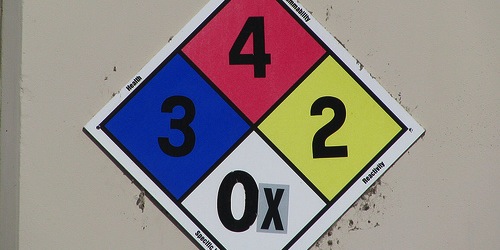Credit card Q&A: “How many credit cards should I have?”
Credit cards can be useful tools to manage debt and earn rewards for everyday purchases, but they can also cause problems if you’re not responsible.
Aside from landing yourself in serious credit card debt, too many credit cards can drag down your credit score, though it’s unclear how many is too many.
So let’s start with one credit card and work our way up.
You Should Have At Least One Credit Card!
I think everyone should have at least one credit card because it’s a safe way to make purchases, establish credit (why we need credit), and can serve as a good emergency back-up if you’re without cash.
There are also great cash back rewards on many credit cards that shouldn’t be ignored, not to mention awesome sign-up bonuses.
And if you’ve got one credit card, you should also have a back-up in case your credit card is declined, lost, stolen, or not accepted for some reason.
This is especially important if on vacation or away from home. Imagine if you only carried an American Express card to Europe and you could only pay with a Visa or MasterCard.
If you travel abroad often, it might serve you well to get your hands on a Capital One credit card, as such cards don’t charge foreign transaction fees.
You may also have credit cards for a particular gas station or a clothing store because of the associated discounts, or a credit card tied to your business.
But before long, your wallet may be an inch thick thanks to all that plastic – this is where things can gets dangerous.
You run the chance of getting into major credit card debt and deflating your credit score, as too many credit accounts may indicate greater risk of default.
[Where do you stand: FICO score range]
Is There a Right Number of Cards?
At the same time, you’ve probably heard that closing credit card accounts hurts your credit score, so what are you to do?
Well, one recommendation is to carry a small amount of credit cards, between 2-5, assuming they all serve a purpose.
A healthy stable of credit cards may look something like this:
– Primary banking institution credit card (like Wells Fargo, BofA, or Chase)
– Back-up credit card (A Visa/MC if you only have an Amex card)
– Rewards credit card (to earn miles/cash back)
– No foreign transaction fee credit card (if you travel)
– Business credit card (if you run a business)
It’s generally best to avoid department store credit cards, and individual gas station credit cards aren’t so hot, considering American Express Blue offers 5% cash back on gas as it stands.
If you feel you’ve got too many credit cards, it’s best to close the newest accounts, as old accounts carry more weight in terms of credit score impact because they have more history.
There are a number of estimates out there, but the average American consumer probably has fewer than five credit cards, so holding more than five could lower your credit score.
However, a recent study from Credit Karma actually revealed that those with so-called excellent credit scores have an average of 6.7 credit cards.
But I think the key to the numbers game is keeping utilization low by spreading it out across more cards.
For example, don’t max out one of your credit cards while leaving others near zero. Or better yet, don’t make charges you can’t pay off in full each month.
I Have 16 Credit Cards and Excellent Credit
At the moment (October 2017), I have a total of 16 credit cards, including both personal and business cards. However, the majority are personal.
I also have 800+ credit scores with all three credit bureaus, which means the relatively high number of cards on my credit report isn’t hurting me, at least not significantly.
Would it be possible for me to have an even higher credit score with fewer open cards? Maybe, but who cares?
Once your scores are above 800 it’s all pretty much the same. And I’d rather have more credit card points and cash back than a few more points tacked onto my credit score.
Even then, we don’t know definitely if I’d score any higher with fewer accounts. So I’ll take my chances.
At the end of the day, if a credit card offers significant value to you, you’ll probably apply for it. And that’s fine. Just don’t get in over your head and always make payments on time!
If you’re curious what I’ve got in my wallet, check out the top right sidebar where I list the current contents.
Lately, I’ve been taking advantage of all types of sign-up bonuses (Citi Prestige and Citi ThankYou Premier) to score lots of credit card points and free travel.
I have also closed a good number of these cards before the annual fee is due to avoid unnecessary costs and my credit score has held up just fine.
This kind of credit card churning can pay big dividends, just remember to practice moderation and avoid overspending in the process.
Read more: How many credit cards can I get approved for?
- Do Capital One Credit Cards Have a 5/24 Rule Too? - February 23, 2023
- Quickly See the Many Ways You Can Use American Express Membership Rewards Points - February 21, 2023
- Best Gas Credit Cards – Earn Up to 8X Points! - February 15, 2023

